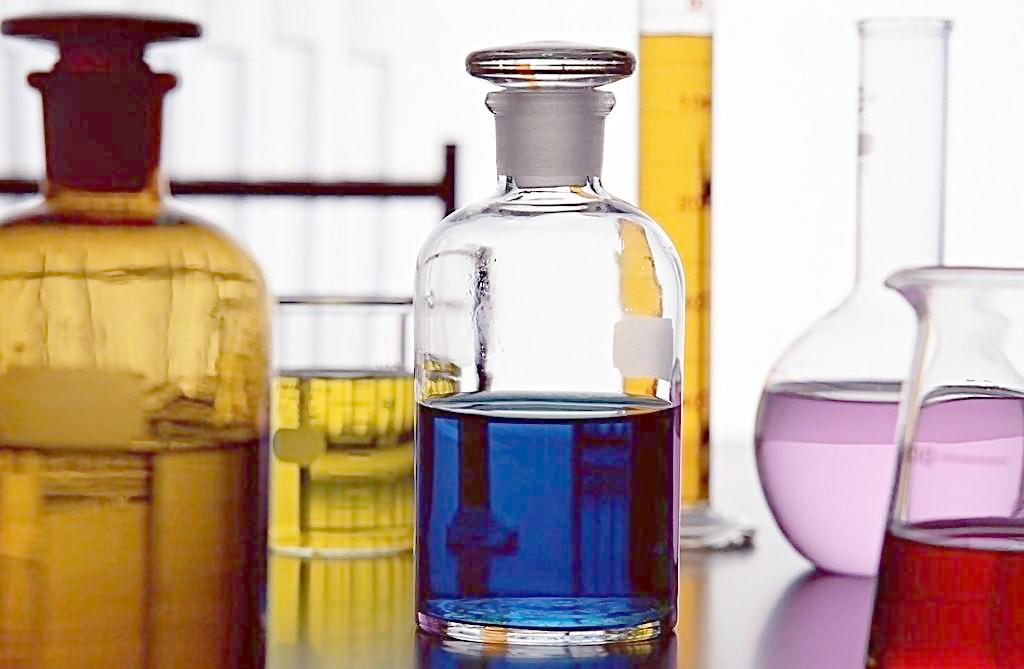Someone of insight was needed to thrust chemistry into the modern age, and it was the French who provided him. His name was Antoine-Laurent Lavoisier. Born in 1743, Lavoisier was a member of the minor nobility (his father had purchased a title for the family). In 1768, he bought a practicing share in a deeply despised institution called the Ferme Generale (or General Farm), which collected taxes and fees on behalf of the government.
這時(shí)候,需要有個(gè)目光敏銳的人來(lái)把化學(xué)推進(jìn)到現(xiàn)代。法國(guó)出了這么個(gè)人。他的名字叫安托萬(wàn)—洛朗·拉瓦錫。拉瓦錫生于1743年,是一個(gè)小貴族家族的成員(他的父親為這個(gè)家族出錢買了一個(gè)頭銜)。1768年,他在一家深受人們討厭的機(jī)構(gòu)里買了個(gè)開(kāi)業(yè)股。那個(gè)機(jī)構(gòu)叫做“稅務(wù)總公司”,代表政府負(fù)責(zé)收取稅金和費(fèi)用。
Although Lavoisier himself was by all accounts mild and fair-minded, the company he worked for was neither. For one thing, it did not tax the rich but only the poor, and then often arbitrarily. For Lavoisier, the appeal of the institution was that it provided him with the wealth to follow his principal devotion, science. At his peak, his personal earnings reached 150,000 livres a year—perhaps $20 million in today's money.
根據(jù)各種說(shuō)法,拉瓦錫本人又溫和,又公正,但他工作的那家公司兩方面都不具備。一方面,它只向窮人征稅,不向富人征稅;另一方面,它往往很武斷。對(duì)拉瓦錫來(lái)說(shuō),那家機(jī)構(gòu)之所以很有吸引力,是因?yàn)樗鼮樗峁┝舜罅康腻X來(lái)從事他的主要工作,那就是科學(xué)。最多的時(shí)候,他每年掙的錢多達(dá)15萬(wàn)里弗赫——差不多相當(dāng)于今天的1200萬(wàn)英鎊。

Three years after embarking on this lucrative career path, he married the fourteen-year-old daughter of one of his bosses. The marriage was a meeting of hearts and minds both. Madame Lavoisier had an incisive intellect and soon was working productively alongside her husband. Despite the demands of his job and busy social life, they managed to put in five hours of science on most days—two in the early morning and three in the evening—as well as the whole of Sunday, which they called their jour de bonheur (day of happiness). Somehow Lavoisier also found the time to be commissioner of gunpowder, supervise the building of a wall around Paris to deter smugglers, help found the metric system, and coauthor the handbook Methode de Nomenclature Chimique , which became the bible for agreeing on the names of the elements.
走上這條賺錢很多的職業(yè)道路3年之后,他娶了他的老板的一個(gè)14歲的女兒。這是一樁心和腦都很匹配的婚事。拉瓦錫太太有著機(jī)靈的頭腦和出眾的才華,很快在她的丈夫身邊作出了許多成績(jī)。盡管工作有壓力,社交生活很繁忙,在大多數(shù)日子里他們都要用5個(gè)小時(shí)——清晨2個(gè)小時(shí),晚上3個(gè)小時(shí)——以及整個(gè)星期天(他們稱其為“快活的日子”)來(lái)從事科學(xué)工作。不知怎的,拉瓦錫還擠得出時(shí)間來(lái)?yè)?dān)任火藥專員,監(jiān)督修建巴黎的一段城墻來(lái)防范走私分子,協(xié)助建立米制,還和別人合著了一本名叫《化學(xué)命名法》的手冊(cè)。這本書成了統(tǒng)一元素名字的“圣經(jīng)”。











